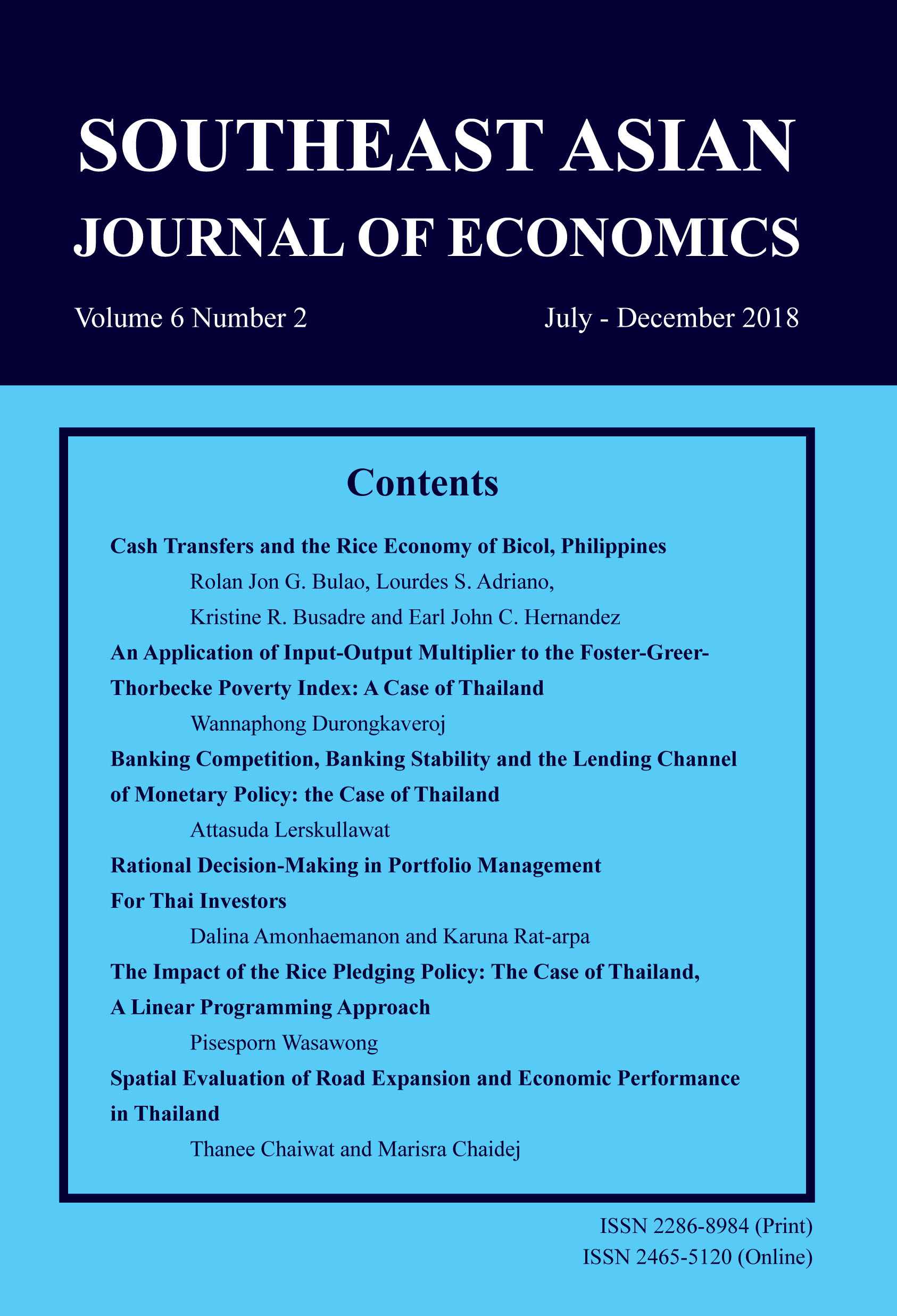Fiscal Policy and Diversifcation in Nigeria: A Time-Series Analysis
Keywords:
Diversification, ECM, Fiscal Policy, Government Expenditure, Tax RevenueAbstract
This paper analyses efcacy of fscal policy for diversifcation in Nigeria. In addition, it examines the average impact of economic growth on the diversity index by employing time series data covering the period from 1980 to 2015. It adopts the Phillips-Perron (PP) unit root test to ascertain order of integration of the series whilst the possibility of long-run relationship among the variables is ascertained using the Wald Test. The Ordinary Least Squares (OLS) estimation reveals a signifcantly positive relationship between the index of diversifcation and each of petroleum proft tax, capital expenditure, and fscal freedom in the country. Thus, it concludes that fscal policy variables are efective for driving diversifcation in Nigeria. It, however, suggests that the government should strengthen its strategy for collecting the petroleum proft tax. Also, the government should direct capital spending to the provision of infrastructural facilities to boost manufacturing exports. Finally, a strong and independent institution for fruitful diversifcation process is recommended.
Downloads
Published
How to Cite
Issue
Section
License
The submission of a manuscript implies that the paper is an original work and has not been published elsewhere. The author(s) authorize the journal to reproduce or distribute the paper in printed or other electronic forms.







